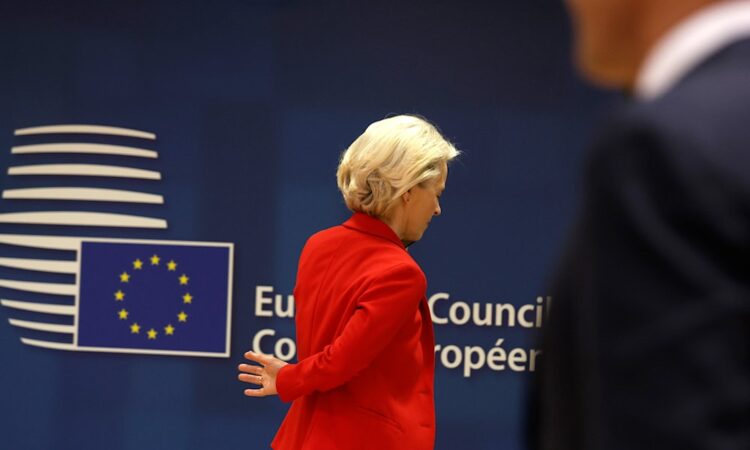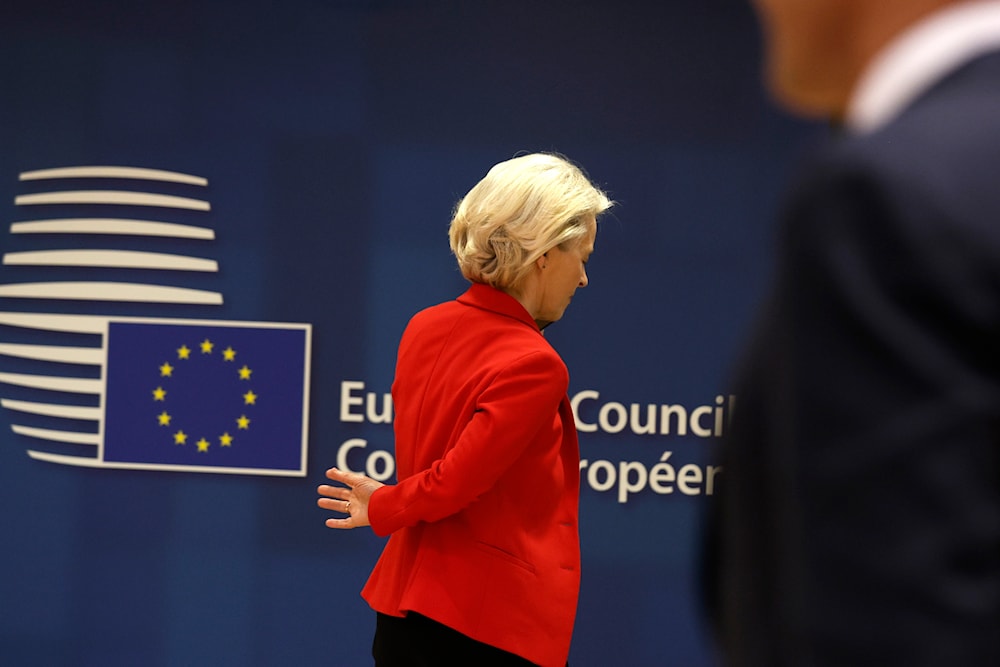
€191 billion ($205 billion) in Russian funds currently held in the Belgian clearinghouse Euroclear are at the center of this proposal.
-

European Commission President Ursula von der Leyen attends a round table meeting at an EU summit in Brussels, on Wednesday, on April 17, 2024. (AP)
The EU has agreed on the expropriation of revenue generated from frozen Russian assets to proceed with funding and arming Kiev, Brussels announced on May 7.
The bloc’s ambassadors agreed on the course of actions “in principle”, however, the legal text still needs to be ratified by the EU Council.
The Belgian presidency said on X on May 7 that “EU ambassadors agreed in principle on measures concerning extraordinary revenues stemming from Russia’s immobilized assets.”
EU ambassadors agreed in principle on measures concerning extraordinary revenues stemming from Russia’s immobilised assets.
The money will serve to support #Ukraine‘s recovery and military defence in the context of the Russian aggression.
— Belgian Presidency of the Council of the EU 2024 (@EU2024BE) May 8, 2024
Europan Commission President Ursula von der Leyen said, “There could be no stronger symbol and no greater use for that money than to make Ukraine and all of Europe a safer place to live.”
The proposal
€191 billion ($205 billion) in Russian funds currently held in the Belgian clearinghouse Euroclear are at the center of this proposal. Since the start of the Russian-Ukrainian conflict, Western states have frozen around $300 billion of Moscow’s sovereign capital abroad.
According to Euroclear’s CEO Valeria Urbain, Euroclear makes €2-3 billion in profits annually from Russian money.
With the first tranche predicted to happen in July, the EU is aiming to utilize 90% of the profits for purchasing armaments for Ukraine, and 10% for non-military aid, under the current proposal.
25% of corporate tax will continue to be levied by Belgium, and 10% will be kept by Euroclear, alongside 0.3% of future profits as an incentive fee before the money is sent to the EU to give the clearing house a buffer against ongoing and future Russian litigation.
On May 7, Urbain told L’Echo that Euroclear tied the seizing of Russian assets to “opening Pandora’s box.”
She also warned that this could push “major international investors to turn away from Europe,” due to trust issues over their own assets.
Russia, IMF warned before about this move
Russian Finance Minister Anton Siluanov stated on February 26 in an interview with RIA Novosti that if the West applies its threats to Russia and confiscates Russian assets blocked abroad, Russia’s response will not be nice. He stressed that the West also has assets in Russia that could be endangered if the latter’s funds are used.
“This is not a question for us, we are following the decisions of Western countries,” Siluanov emphasized, then added, “We have frozen no less [of Western funds]. Any actions with our assets will receive a symmetrical response.”
In addition, the International Monetary Fund (IMF) cautioned on February 22 that Western plans to seize frozen Russian assets could pose a threat to the global monetary system and entail unforeseen risks.
“From our perspective, it is important that any actions have sufficient legal underpinnings to avoid potential risks, and these include risks of litigation, risks of countermeasures, and risks to the international monetary system,” IMF spokesperson Julie Kozack told reporters.






